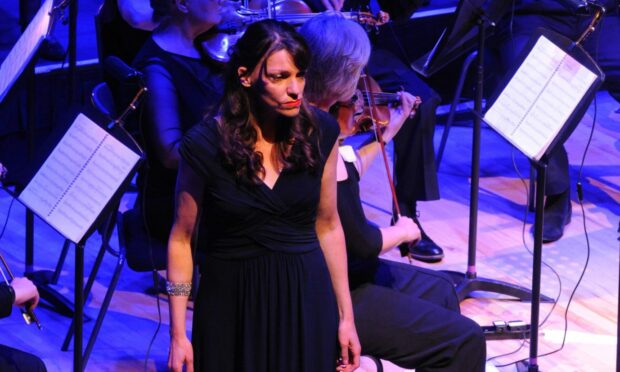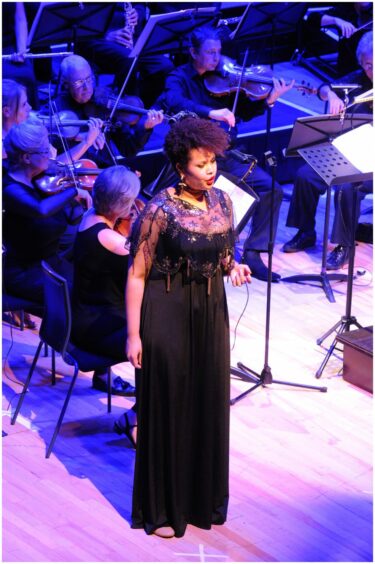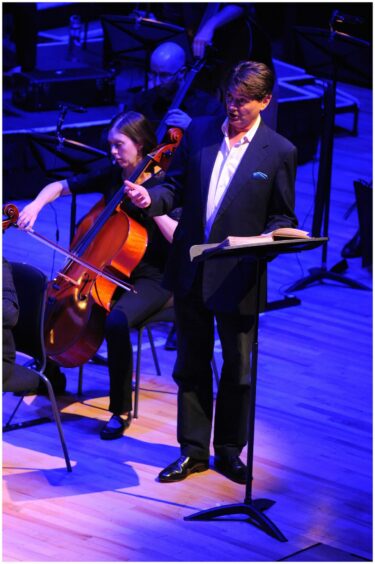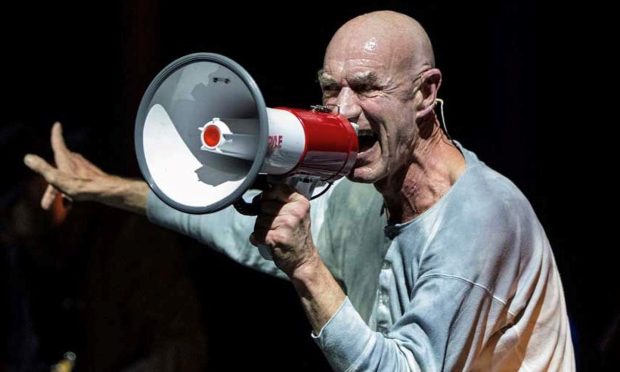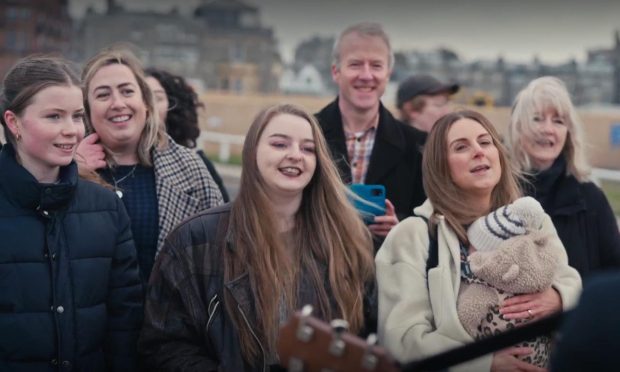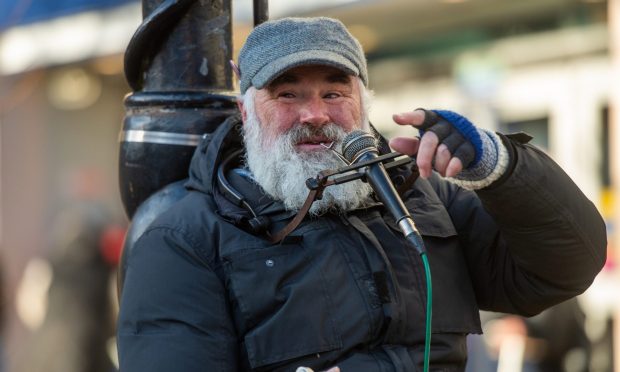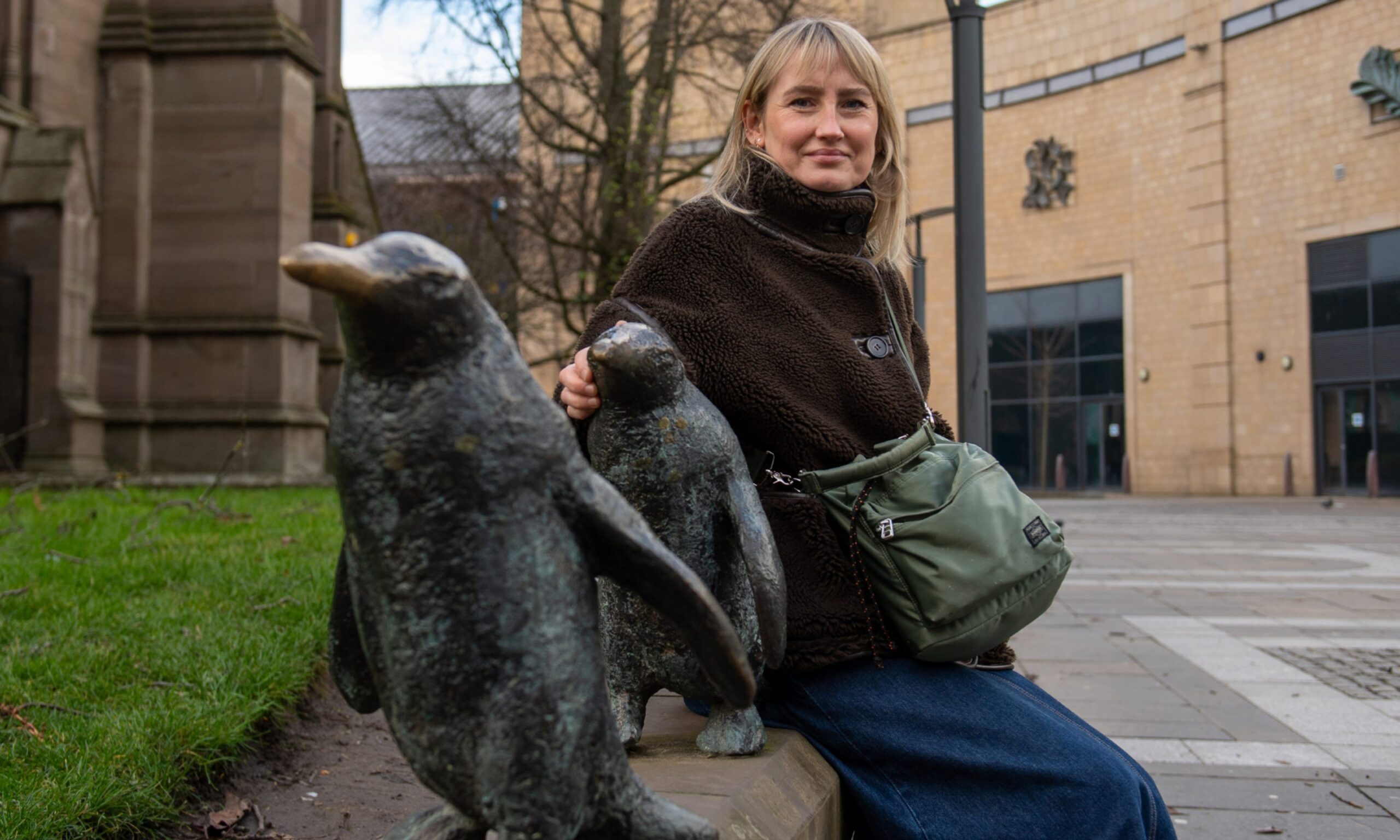The past weekend’s Opera Festival Scotland – a new initiative not just for Dundee but for the whole country – opened on Thursday in some style with an evening of operatic highlights supplied by a quintet from Scottish Opera.
There was an acute sense of professionalism from this troupe, and this professionalism or semi-professionalism carried on through Friday night with what could be considered the jewel in the festival’s crown – a concert performance of Verdi’s Aida.
Normally I have no interest in the machinations of classical performances, but I had a vested interest in this one being a total success.
Sumptuous grand opera
As coordinator of orchestra and chorus, I had been immersed in the logistical complications of putting together an amateur chorus and orchestra and nurturing both through a series of rehearsals to ensure a memorable performance.
However, with my work done, all I could do was sit in the Caird Hall and enjoy two-and-a-half hours of sumptuous grand opera with fingers crossed for a successful outcome.
Yes, I sang some of the bass parts sotto voce and there was more than one air cymbal crash, but it’s fair to say I revelled in the situation in a world of quiet contentment.
But there was no real need to worry. A chorus I’d first experienced in rehearsals on Zoom, uncomfortable both in Italian pronunciation and Verdi’s demanding score, were on the day a strong and confident unit, peaking at the right moment and proving that when it comes to a fine performance, quality wins over quantity.
Doing justice to a difficult score
The orchestra? By being able to hand-pick players from the excellent amateurs and semi-pros that abound in the Dundee/Perth/Fife area, I was spoilt for choice.
I couldn’t have asked more of them, and if I said they did justice to a difficult score, that would be something of an understatement.
Anyway, knowing each player well, I knew that I was on to a winner from day one. Familiarity breeds contentment.
The soloists were the only fully-professional part of the proceedings, hand-picked by conductor Ralph Jamieson and festival director Michael Jamieson.
Tenor Stephen Brown (Radames) was pitched in at the deep end, answering an eleventh-hour call, but his performance belied that. And the fact he had never sung the part before made a top-class delivery somewhat bewildering.
I couldn’t fault him and equally proficient were Zorbey Turkalp (King of Egypt), Ross Cumming (Amonasro) and Colin Brockie (Ramfis), with latter perhaps the stand-out of these three soloists.
Outstanding leading ladies
But I felt the two leading ladies stood out head and shoulders above all else, and you’d go a long way to find a better Aida and Amneris.
Susan McNaught in the title role was a positive wow with her solo spots that were worthy of a Covent Garden ovation.
And as for Simone Ibbett Brown? She is a mezzo soprano I would dearly love to hear again, extracting every ounce of passion and drama in a role as demanding as that of Aida.
These three separate entities – chorus, orchestra and soloists – merged seamlessly into one magnificent union, marshalled by conductor Ralph Jamieson.
I’m sure that if I had gone into this performance cold and unattached, my reaction would have been the same – what a marvellous night at the opera.
